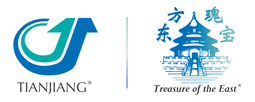Three Classical Jun Zi Tang: When to Use Each Formula
In Traditional Chinese Medicine (TCM), herbal formulas play a vital role in restoring balance to the body. Si Jun Zi Tang, Liu Jun Zi Tang, and Xiang Sha Liu Jun Zi Tang are three classical Chinese herbal medicine formulas historically used to regulate spleen-stomach qi deficiency. Though they share foundational principles, their compositions and clinical applications evolve to address increasingly complex issues seen in clinical practice.
Formula Breakdown
-
Si Jun Zi Tang (Four Gentlemen Decoction)
Composition: Equal ratios of Ren Shen/Dang Shen, Bai Zhu, Fu Ling, and Zhi Gan Cao.
Key Actions: Tonifies qi, strengthens the spleen.
Common Uses: Historically utilized for patterns of pure spleen-stomach qi deficiency with fatigue, pale complexion, poor appetite, loose stools, and weak pulse.
Clinical Role: The foundational formula for qi deficiency, acting as "tonic soil" to rebuild vitality without stagnation.
-
Liu Jun Zi Tang (Six Gentlemen Decoction)
Composition: Si Jun Zi Tang + Ban Xia, Chen Pi.
Key Actions: Tonifies qi, resolves phlegm-dampness.
Common Uses: Traditionally for qi deficiency patterns complicated by phlegm-damp obstruction (chronic cough with copious sputum, nausea, epigastric fullness, greasy tongue coating).
Clinical Role: Targets the "deficiency-excess" interplay, addressing sluggish qi movement and phlegm accumulation.
-
Xiang Sha Liu Jun Zi Tang (Six Gentlemen Plus)
Composition: Liu Jun Zi Tang + Mu Xiang, Sha Ren.
Key Actions: Tonifies qi, resolves phlegm, regulates qi stagnation.
Common Uses: Utilized historically for qi deficiency patterns with phlegm-dampness and qi stagnation (e.g., epigastric distension/pain, belching, irregular bowel movements).
Clinical Role: Manages "triple obstruction" (deficiency, phlegm, stagnation), common in functional gastrointestinal disorders.
Comparative Analysis
| Formula | Core Herbs | Key Actions | Applicable Patterns |
| Si Jun Zi Tang | Ren Shen/Dang Shen, Bai Zhu, Fu Ling, Zhi Gan Cao | Pure qi supplementation | Spleen-stomach qi deficiency |
| Liu Jun Zi Tang | + Ban Xia, Chen Pi | Qi tonic + phlegm resolution | Qi deficiency + phlegm-dampness |
| Xiang Sha Liu Jun Zi Tang | + Mu Xiang, Sha Ren | Qi tonic + phlegm resolution + qi regulation | Qi deficiency + phlegm-dampness + qi stagnation |
Clinical Pearls for Practitioners
Hierarchical Progression:
- Si Jun Zi Tang: Base for pure deficiency (no phlegm/stagnation).
- Liu Jun Zi Tang: Add when phlegm-dampness manifests (traditionally accompanied by thick sputum and a greasy tongue).
- Xiang Sha Liu Jun Zi Tang: Escalate for severe qi stagnation (in TCM, this pattern historically presents with pain, bloating, and emotional stress).
Modern Applications:
- Si Jun Zi Tang: Oncological and Pediatric Nutrition Support.
- Liu Jun Zi Tang: Metabolic support with phlegm-obesity.
- Xiang Sha Liu Jun Zi Tang: Lower GI support with liver-spleen disharmony.
Formula Logic:
In TCM, the principle "Tonify without stagnation, resolve without depletion" guides formulation strategies. The layered addition of herbs (Chen Pi → Mu Xiang) ensures that deficiency and excess are addressed in a balanced manner.
These three formulas represent a therapeutic ladder for spleen deficiency syndromes:
-
Si Jun Zi Tang fortifies the root ("earth").
-
Liu Jun Zi Tang clears pathological phlegm-dampness.
-
Xiang Sha Liu Jun Zi Tang restores qi dynamics.
These three formulas represent a therapeutic progression in treating spleen-stomach qi deficiency. Understanding their distinctions allows for more precise applications. To maximize support, practitioners should adapt dosages dynamically:
- Increase qi-tonics (Ren Shen, Bai Zhu) for severe fatigue and deficiency.
- Emphasize phlegm-resolving herbs (Ban Xia, Chen Pi) for damp digestion and sluggish metabolism.
- Prioritize qi-regulating herbs (Mu Xiang, Sha Ren) for patterns including bloating, stagnation, and stress-related digestive discomfort.
This article is provided only as an educational resource - it is not intended or implied to be a substitute for professional medical advice, and the herbs and/or formulas within are not intended to diagnose, treat, cure, or prevent any diseases. The statements regarding Traditional Chinese Medicine and herbal formulas have not been evaluated by the Food and Drug Administration (FDA). This information is intended only for licensed healthcare practitioners.



















